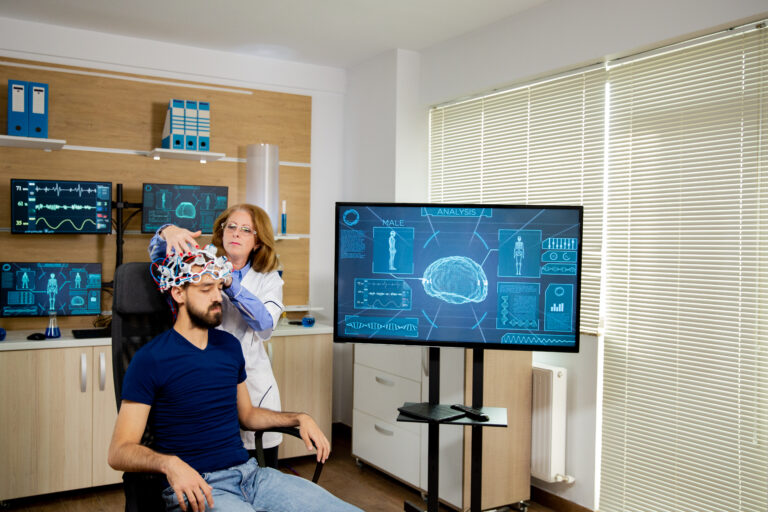Future Trends in Medical Billing: What 2026 and Beyond Hold for Providers, Specialists & Vendors
The healthcare industry is on the verge of a transformative decade. By 2026, medical billing as we know it will be dramatically reshaped by artificial intelligence (AI), automation, and evolving reimbursement models. For providers, specialists, and vendors, the next few years will bring not just new technologies—but new expectations for speed, accuracy, transparency, and value.
At Right Medical Billing, we’re already seeing early indicators of what’s coming: automated workflows replacing manual processes, payers relying more on predictive analytics, and patients expecting digital-first billing experiences. In this blog, we’ll explore the emerging trends that will redefine the revenue cycle landscape and how providers can prepare for success in 2026 and beyond.
AI and Predictive Analytics Will Dominate the Revenue Cycle
AI will become the cornerstone of future medical billing systems. While most practices today use some form of automation, the next generation of AI-powered RCM platforms will go beyond simple automation—they’ll use predictive analytics to forecast denials, optimize coding accuracy, and even recommend the best claim submission timing for faster payments.
Key Impacts:
-
Denial Prediction: Algorithms will analyze historical claim data and payer feedback to flag high-risk claims before submission.
-
Revenue Forecasting: AI will predict expected reimbursements and help practices plan cash flow in real time.
-
Continuous Learning: Machine learning models will evolve as payer rules change, ensuring compliance without constant manual updates.
Right Medical Billing has already begun integrating these technologies into AR management systems—reducing aging accounts and improving first-pass claim rates for specialty practices nationwide.
Value-Based Care Will Replace Fee-for-Service as the Norm
By 2026, the shift toward value-based reimbursement will accelerate, forcing providers and billing companies to rethink their metrics. Instead of being rewarded solely for the number of services rendered, providers will be paid for outcomes and patient satisfaction.
What This Means for Billing:
-
RCM processes must capture quality metrics, readmission rates, and preventive care data.
-
Claims will need to integrate clinical outcomes with financial data.
-
Billing specialists must collaborate closely with clinical teams to ensure documentation aligns with quality-based reimbursement requirements.
Vendors like Right Medical Billing will play a critical role in ensuring accurate coding for quality measures—helping practices maximize revenue in this new paradigm.
Automation and Robotics Will Eliminate Manual Tasks
The concept of “hands-free billing” will become reality. Robotic Process Automation (RPA) and AI-driven bots will manage tasks like claim submission, follow-ups, eligibility verification, and payment posting without human intervention.
Example Use Cases:
-
Automated Payer Follow-Ups: Bots will track claim status, send reminders, and escalate denials automatically.
-
Smart Payment Posting: Systems will reconcile remittance data directly from electronic funds transfer (EFT) statements.
-
Eligibility Verification in Seconds: AI will instantly confirm insurance details and detect policy lapses.
While automation will streamline operations, human expertise will still be essential for complex cases, payer negotiations, and compliance auditing—areas where Right Medical Billing continues to provide value.
Unified Data Platforms Will End Fragmented Billing
The next wave of RCM innovation will be driven by data interoperability. Practices currently juggle multiple systems—EHRs, billing software, clearinghouses—that don’t always “talk” to each other. By 2026, unified data platforms will merge clinical, financial, and administrative data into a single ecosystem.
This integration will enable:
-
Real-time synchronization between clinical documentation and billing codes
-
Fewer manual errors caused by missing or inconsistent data
-
Seamless claim submissions directly from the EHR
Such interoperability aligns with Right Medical Billing’s vision of a centralized RCM framework—allowing providers to make faster, smarter decisions.
Cybersecurity and Data Privacy Will Become Top Priorities
As billing becomes more digitized, data breaches and cyber threats will rise in frequency and sophistication. Protecting patient information will no longer be just a compliance issue—it will be a financial and reputational necessity.
Future Safeguards Will Include:
-
Blockchain-based ledgers to ensure transparency and traceability in claim transactions
-
AI threat detection to identify unusual access patterns in billing systems
-
Zero-trust architectures to secure PHI across remote and cloud-based environments
Right Medical Billing maintains HIPAA-compliant systems and invests in advanced encryption and data governance frameworks to ensure that automation never compromises patient confidentiality.
Specialty-Focused Billing Will Grow in Demand
Specialty practices—like oncology, nephrology, orthopedics, cardiology, and behavioral health—will require increasingly specialized billing knowledge. With unique codes, treatment cycles, and authorization requirements, general billing solutions will no longer suffice.
AI will help coders handle specialty-specific complexities by:
-
Suggesting context-aware modifiers and CPT combinations
-
Detecting specialty-specific denial trends
-
Providing reimbursement benchmarking against national averages
Right Medical Billing is already leading in this space, offering customized RCM strategies tailored to specialty practices across multiple states.
Patient-Centric Billing Will Drive Transparency and Satisfaction
Patients today expect the same level of clarity in healthcare billing that they get from online retail or banking. By 2026, patient-centric billing portals powered by AI will provide detailed explanations of benefits, payment options, and cost transparency.
Features You’ll See:
-
AI chatbots explaining charges in plain language
-
Predictive cost estimators based on payer data and patient plans
-
Flexible payment models that integrate with digital wallets and financing options
Practices that adopt these systems early will not only improve collections but also build trust and loyalty—turning billing into a positive patient experience rather than a pain point.
Outsourcing to Expert RCM Partners Will Increase
As technologies evolve, so will the complexity of managing them. By 2026, more healthcare organizations will outsource RCM to specialized vendors with AI capabilities, robust infrastructure, and compliance expertise.
Outsourcing will no longer be seen as cost-cutting—it will be a strategic partnership to enhance operational agility and revenue outcomes.
Right Medical Billing exemplifies this model, combining AI-driven insights with human intelligence to deliver unmatched accuracy, compliance, and recovery rates for healthcare providers nationwide.
Real-Time Analytics Will Power Decision-Making
Future billing platforms will offer real-time revenue dashboards with predictive insights, allowing providers to identify bottlenecks, track performance, and forecast cash flow.
Imagine having an intelligent system that tells you:
-
Which payers are most likely to delay payments
-
Which procedures generate the highest ROI
-
Which states or specialties face recurring denial patterns
This level of visibility will redefine how providers manage finances—turning reactive billing into proactive strategy.
Regulatory Shifts Will Demand Continuous Adaptation
The intersection of AI and healthcare regulation will bring new compliance challenges. Federal and state agencies will implement frameworks governing AI ethics, algorithmic accountability, and automated decision-making in billing.
Staying compliant will require vendors to continually update systems to reflect:
-
ICD and CPT code revisions
-
Payer policy updates
-
AI model audit requirements
Right Medical Billing’s compliance-driven culture and ongoing staff training ensure that clients stay ahead of these evolving standards—without disruption to cash flow.
Final Takeaway
The future of medical billing is intelligent, integrated, and insight-driven.
By 2026 and beyond, AI, automation, and data analytics will not just streamline billing—they’ll redefine the financial backbone of healthcare delivery.
Practices that invest early in AI-enabled RCM solutions and partner with experienced billing vendors like Right Medical Billing will enjoy faster reimbursements, stronger compliance, and a competitive edge in an increasingly digital healthcare economy.



